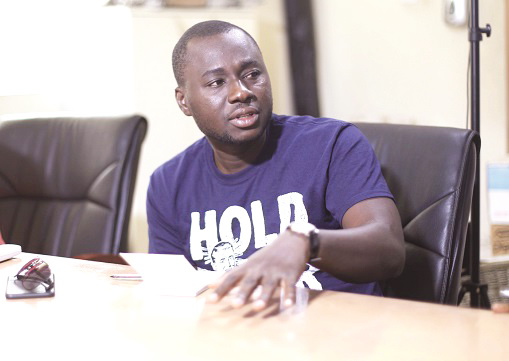
Disband political vigilantes to sustain democracy - Atik Mohammed
The General Secretary of the People’s National Convention (PNC), Mr Atik Mohammed, has re-echoed the need for political parties in the country to disband all political vigilante groups to sustain Ghana’s democracy.
He noted that the continuous existence of such groups in the country was not healthy for the nation’s democracy.
In an interview with the Daily Graphic on the sidelines of a two-day post-election workshop organised by the Coalition of Domestic Election Observers (CODEO) with support from the United States Agency for International Development (USAID) at the Aqua Safari Resort in Ada on Monday, Mr Mohammed said failure to disband such unauthorised vigilante groups could encourage other political parties to also set up such groups to defend their officers.
“PNC will not hesitate to also raise a vigilante group to provide security for its national officers if those of the governing New Patriotic Party (NPP) and the National Democratic Congress (NDC) continue to operate in this country,” he stressed.
Groups
The governing NPP’s Invincible Forces and the Delta Force, and the NDC’s Azorka Boys and the Bolga Bulldogs are the most popular political vigilante groups operating in the country in recent times and in the past.
Mr Mohammed said the political parties were using these vigilante groups to do all kind of things and that phenomenon, if not checked and discarded from our body politic, could erode the gains made in Ghana’s democracy.
The PNC General Secretary said though there could be a correlation between unemployment and the recruitment of individuals into such groups, there was no justification for their existence.
Election review
Among the topics discussed at the workshop included the preparatory phase, the election-day phase and the post-election phase. The forum also examined the roles played by key stakeholders such as the Electoral Commission (EC), political parties, security agencies, the media and civil society organisations, with a view to identifying challenges as well as opportunities for future improvement in the conduct of elections in Ghana.
Participants in the workshop were drawn from key constitutional bodies, faith-based and civil society organisations.
Learning platform
At the programme, the co-Chairs of CODEO, Professor Miranda Greenstreet and Justice V.C.R.A.C. Crabbe, said the workshop would serve as the platform to take stock of valuable lessons from the conduct of the elections to help inform and improve the conduct of future elections.
The co-chairs indicated that various presentations and deliberations that were discussed at the workshop would be incorporated into CODEO’s final report on the 2016 election to serve as a source book on the 2016 election.
They said recommendation from the workshop would also inform advocacy for electoral reform to help improve the conduct of subsequent elections in the country.
Suggestions
The Director of Elections at the Electoral Commission, Mr Samuel Tetteh, said in spite of the numerous challenges that threatened the conduct of the 2016 polls, it turned out to be a very peaceful and successful election, commending the involvement of many stakeholders, including CODEO, for the roles they played.
While welcoming criticisms, he called on the participants to offer constructive suggestions devoid of partisan sentiments to help the EC to improve on its election management role.
